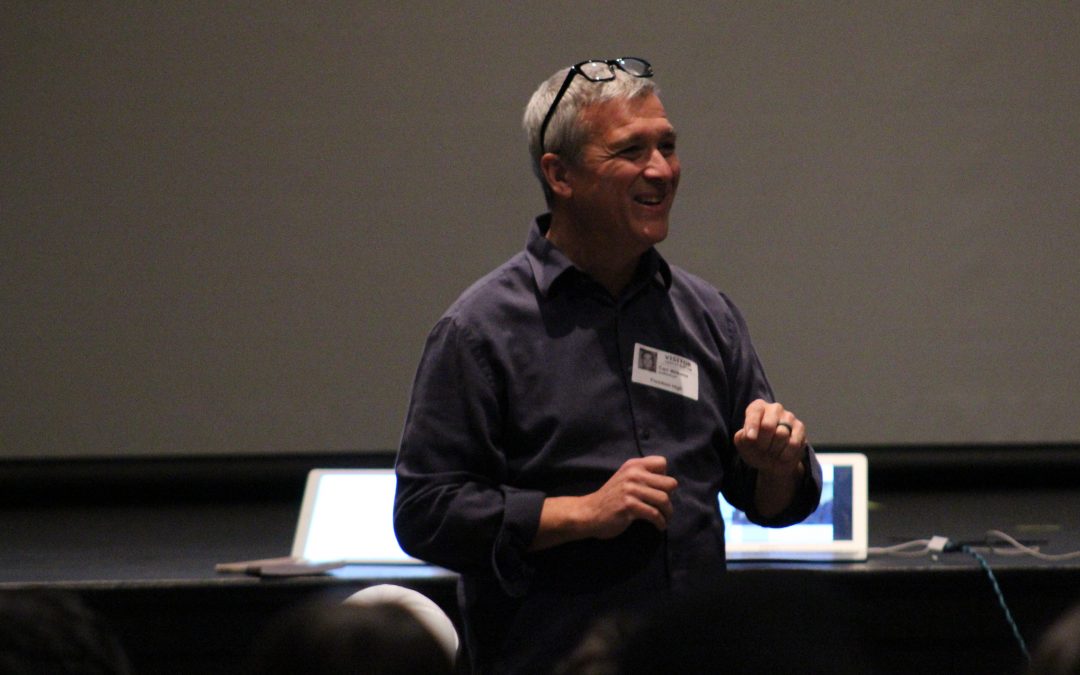Many topics that students learn about in school can seem irrelevant to life in South Riding. Certain concepts, like genocide, can be difficult for a Freedom student to even fathom. To remedy this, Carl Wilkens, the sole U.S. citizen who remained in Rwanda during the Rwandan genocide, annually visits FHS to discuss the genocide and to put a face to such a foreign concept.
History teacher Jessica Legnini invited Wilkens to speak at FHS for the first time three years ago, and it has been a valuable asset for the students. This year, Wilkens spoke to several AP World History classes on Dec. 7.
“When [Wilkens] comes to talk to us, first of all, you’re talking to a man that has an understanding of the human capacity for bad, but he also has this incredible understanding of human capacity for good,” Legnini said. “So, he has this very nuanced understanding of human action, and that is very important because I think that most of us lack that nuance in our understanding.”
For the sake of simplicity, many students can view history as a struggle between those who are good, and those who are bad, however, Wilkens’ experience enables him to look further. This is an invaluable skill that fosters a population focused on the collective good. Upon reflection of events during the genocide, Wilkens often finds himself with a matured understanding.
When he speaks, Wilkens does not limit himself just to the events of the genocide. Instead, he focuses on human behavior and philosophical questions. Some of these discussion points include the relationship between guilt and shame and how to make decisions when the choice is unclear. His intention is not only to inform people about the horrific genocide, but also to provoke students into thinking about big topics that can be applied to all aspects of life. One of the main topics he spoke about during his trip this year was how to forgive people without trivializing the harm they have done.
“Yes, we can forgive, but be clear what we mean when we say forgive,” Wilkens said. “Forgiveness does not mean that there are no consequences. Consequences are important and when we keep consequences in the conversation then that helps us realize that we are not minimizing anything.”
Some of these questions may not have a definitive answer, but the point of the discussion is to view them from different perspectives. Having lived in Rwanda during the genocide and seen a humanitarian crisis first hand, Wilkens has a unique perspective on life. Aside from his complex philosophical discussions, Wilkens also discusses current issues that Rwanda is facing.
“[Wilkens] is not frozen in the past,” Legnini said. “We understand Rwanda in terms of genocide. He understands Rwanda as this country that is rebuilding itself, reconciling and all of these other things.”
Each year, the discussion changes, evolves and grows. Students at FHS recognize that history is alive, and it is up to them to decide the future and how to remember the past.


Recent Comments